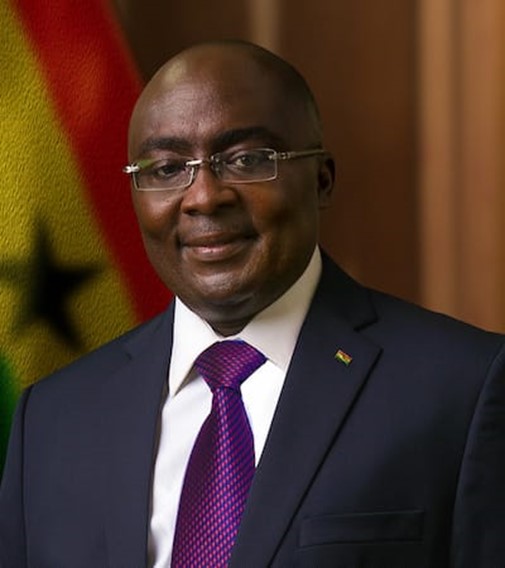Vice President Dr. Mahamudu Bawumia has stressed the urgent need for investments in research and technology, establishment of comprehensive marine protected areas, and reduction of coastal pollution to safeguard biodiversity and support development of Ghana’s blue economy.
This holistic approach, which is also envisaged to promote tourism and address climate change while helping to manage carbon emissions, is overall expected to propel the country’s blue economy further.
By implementing these measures, which align with global efforts to balance economic development with environmental conservation, Ghana will not only be protecting its coastal resources but also contribute to the global goals of sustainable development and climate action.
Dr. Bawumia further said: “This can be successful through a strong collaboration with sectors and international partners”.
To this end, he noted that government is seeking collaboration and shared knowledge to build a blue economy that is not limited by borders – adding “when there is a successful blue economy in Ghana, it will lead to many job opportunities for the youth as well”.
The Vice President was speaking at the ‘3rd Biennial Conference on Fisheries and Coastal Environment’ in Accra, an emphasised the blue economy’s importance – noting it as both an economic opportunity and a moral duty.
He mentioned the United States’ successful blue economy and expressed confidence in Ghana’s potential for growth through hard work.
Ghana’s blue economy sector, including fisheries, ports, aquaculture, tourism, hospitality and energy, contributes 4-10 percent of the country’s annual GDP.
It is against this backdrop that he said: “Despite the enormous benefits of our ocean, there is huge degradation occurring in our coastal landscape”.
This degradation includes coastal erosion caused by sea level risel pollution from municipal waste such as plastic; and chemical pollution from illegal mining activities. It also involves over-exploitation of fisheries resources through illegal unreported and unregulated (IUU) fishing among others.
Dr. Bawumia said: “The health of our ocean and its accompanying resources have deteriorated and rapidly deteriorated as a result of both anthropogenic and natural causes. There is therefore an urgent need to find ways of better tackling the many issues threatening the sustainability of our oceans to boost Ghana’s economy”.
Meanwhile, he said government has undertaken various activities to ensure sustainable ocean management.
“Just like the African Union – and taking from the AU submissions, our government believes the ocean presents a huge opportunity to accelerate development and improve upon the well-being of people in this country. Ghana, with its extensive coastline, is committed to leading the charge toward a sustainable and inclusive blue economy.”
The Conference was organised by the Centre for Coastal Management – Africa Centre of Excellence in Coastal Resilience (CCM-ACECoR) University of Cape Coast, and other strategic partners including the World Bank, WACA, USAID and Vulnerability to Viability Global Partnership among others.
It was held under the theme ‘Inclusive Blue Economy in Africa: Towards Sustainable Transformation and Resilience of the Marine Environment’.
Pro-Vice Chancellor, University of Cape Coast, Rosemond Boohene, also speaking at the Conference observed that the potential to cultivate the blue economy across the continent is hampered by a series of challenges.
She said these include over-exploitation of blue resources, lack of proper policy infrastructure implementation, climate change, pollution and degradation of the ocean among others.
Among other things, she called on the ministry and government agencies empowered to protect the blue economy to establish a robust monitoring and control system, to help in the implementation, management and conservation of marine fisheries resources.
Fisheries economist, Prof. Rashid Sumaila, University of British Columbia, Canada, was the keynote speaker and said the ocean is crucial for survival as many livelihoods depend on it.
He noted that there has been a lot of stress on the ocean, “We have plastics, oil-spillages and climate change affecting it. If we mess up the aquatic system, we suffer; and when there are no fish, it becomes a challenge. We need to work hard on ensuring that the blue economy survives”.
He urged stakeholders to improve upon valuation and think properly to deal with the plastic pollution challenge.
“Illegal fishing is happening everywhere around the world; let us use the scarce resources we have for the best of our society,” he said, adding that: “All our economy will go nowhere if we do not get the dedicated people; let us do well to train the youth in this sector.”










